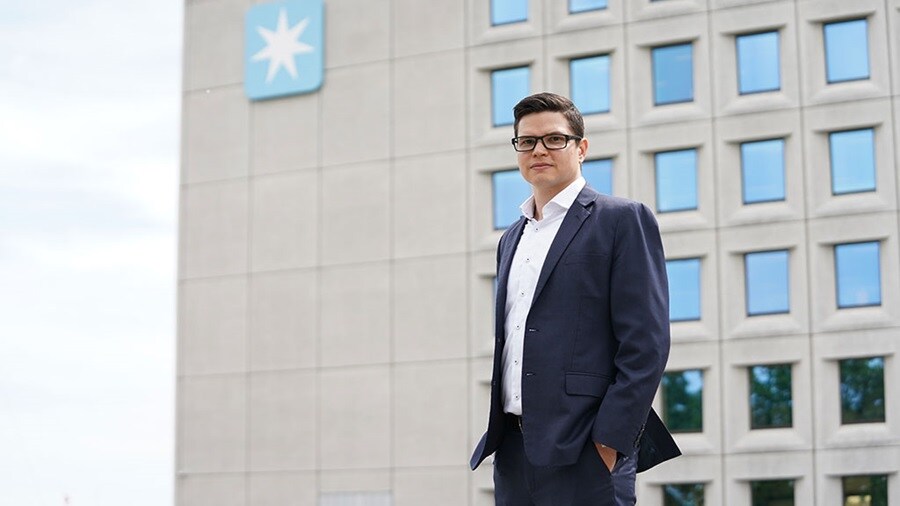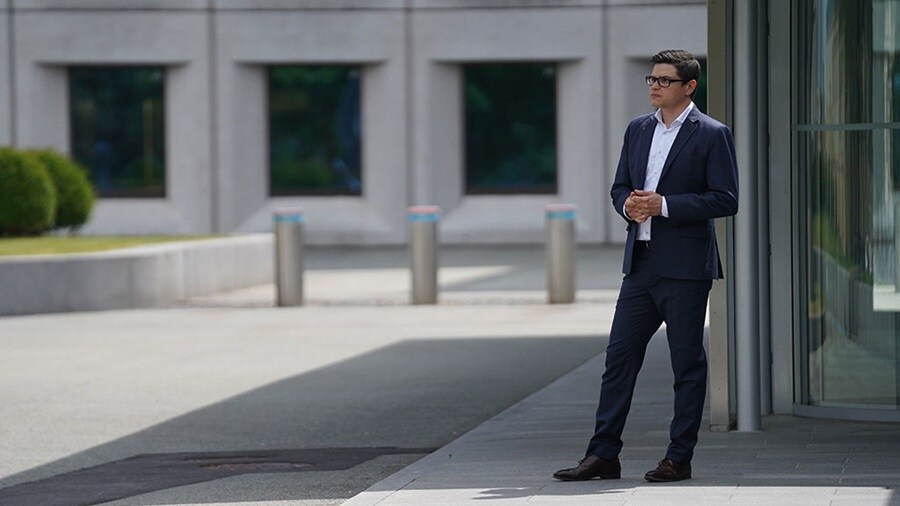Seasoned Regional Head of Sales Excellence in Latin America, Josue Alzamora sharing how embracing different perspectives creates a competitive edge.
Navigating career changes in a dynamic business environment
Adaptability has become increasingly crucial through different stages of my career, and the truth is that the high importance of it is something that I wasn’t completely aware of at the earlier stages of my career, but the need for adaptability started to manifest itself as one of the most critical personal-levers needed to take me through what has been a changing landscape of experiences and environments over the years.
Adapting to new locations and environments has been quite enriching - a journey of exploration, of the places where I have lived and worked, and also a self-reflection journey in which I constantly challenged my own status quo.
In retrospective, one of the most notable highlights of my career so far is having the opportunity to constantly engage with people, be that as colleague, leader, provider, friend – and due to the nature of my roles and location variability, I have found it amazingly energizing to give ideas, and pull from the ideas and knowledge of people with vastly different business and cultural backgrounds, which usually means that they have different angles when looking at the same topic or challenge. This has consistently allowed me to see how there can always be an extra edge in getting people with different perspectives to chip in and form what is ultimately a better outcome or alternative for a specific situation.

Besides other contexts of adaptability, from a business-task perspective, adaptability cannot be detached from discipline, so that we can remain productive in what we do.
Starting from simple things such as the day-to-day agenda, considering that within logistics often unexpected and urgent things can come up leading to the risk of de-railing our own agendas, and from a strategic viewpoint, if not careful, we can end up in what can be described as firefighting cycles without (real) priorities whatsoever, comparable to a ship that has set sail with no destination.
My approach involves having a constant review of priorities at a personal level, and at a team level to calibrate them as needed.

Lifelong lessons in learning
Unexpected disruptions have brought a ton of learnings with them, and it is during disruptive times that I have gotten some of the most valuable lessons both individually and as a leader.
It was after being in the transportation industry for only six months that I encountered my first large scale disruption during what I thought was “a normal day at work” in 2001 while working with an international airline in airport operations in Panama City involving planes headed to New Jersey, USA. This was the day when an attack to the twin towers in New York, USA took place. One basic realization was the need to remain calm, yet also make quick decisions on the ground in front of the developing situation.
After that, due to the nature of my roles, I have gotten involved in numerous largescale disruptions, supporting various regional and global task forces to tackle, amongst others; contingencies around port-strikes, a global cyber-attack, the global pandemic, Suez Canal blockades.
The nature of many of these disruptions is different, which means that there is no way of “completely copying and pasting” what you have done in one disruption to face another one, but there are definitely key learnings in terms of how to prepare for disruptions business wise, and equally importantly, as to how to be mentally ready to deal with them as well. In that sense, it becomes essential to have pre-defined continuity planning involving logistics alternatives beyond those used during a “normal day”.
The experiences I have had on this front have brought me more clarity as an individual and as a leader in terms of what I can do to prepare before a disruption, as well as to how to approach a disruption as and after it happens.
Leading with resilience
What I have found important in front of a disruption is to always think about people first. To quickly device means of communications in case the normal methods are not available. Proactively connect with the teams and ensure the wellbeing of the team members and colleagues.
To be calm but also swift in defining and activating actions to tackle the situation, taking a systematic step-by-step approach by understanding the specific impact, to then deploy specific contingency alternatives, whilst always maintaining a timely communication with key stakeholders.
Teamwork is also absolutely essential in any contingency, and depending on the situation, there may be a need to divide team members into workstreams to tackle specific areas of the disruption.
In essence, my journey has underscored the necessity of adaptability in both personal and professional realms, both individually and as a leader. Embracing change, valuing diverse perspectives, and cultivating resilience are indispensable traits in navigating today's turbulent waters. As I continue to evolve in my career, I carry with me the lessons learned from each challenge, fortified by the belief that adaptability is not just a skill but a mindset essential to move forward.
无论您需要什么,我们都可以随时为您提供帮助
I agree to receive logistics related news and marketing updates by email, phone, messaging services (e.g. WhatsApp) and other digital platforms, including but not limited to social media (e.g., LinkedIn) from A. P. Moller-Maersk and its affiliated companies (see latest company overview). I understand that I can opt out of such Maersk communications at any time by clicking the unsubscribe link. To see how we use your personal data, please read our Privacy Notification.
By completing this form, you confirm that you agree to the use of your personal data by Maersk as described in our Privacy Notification.
